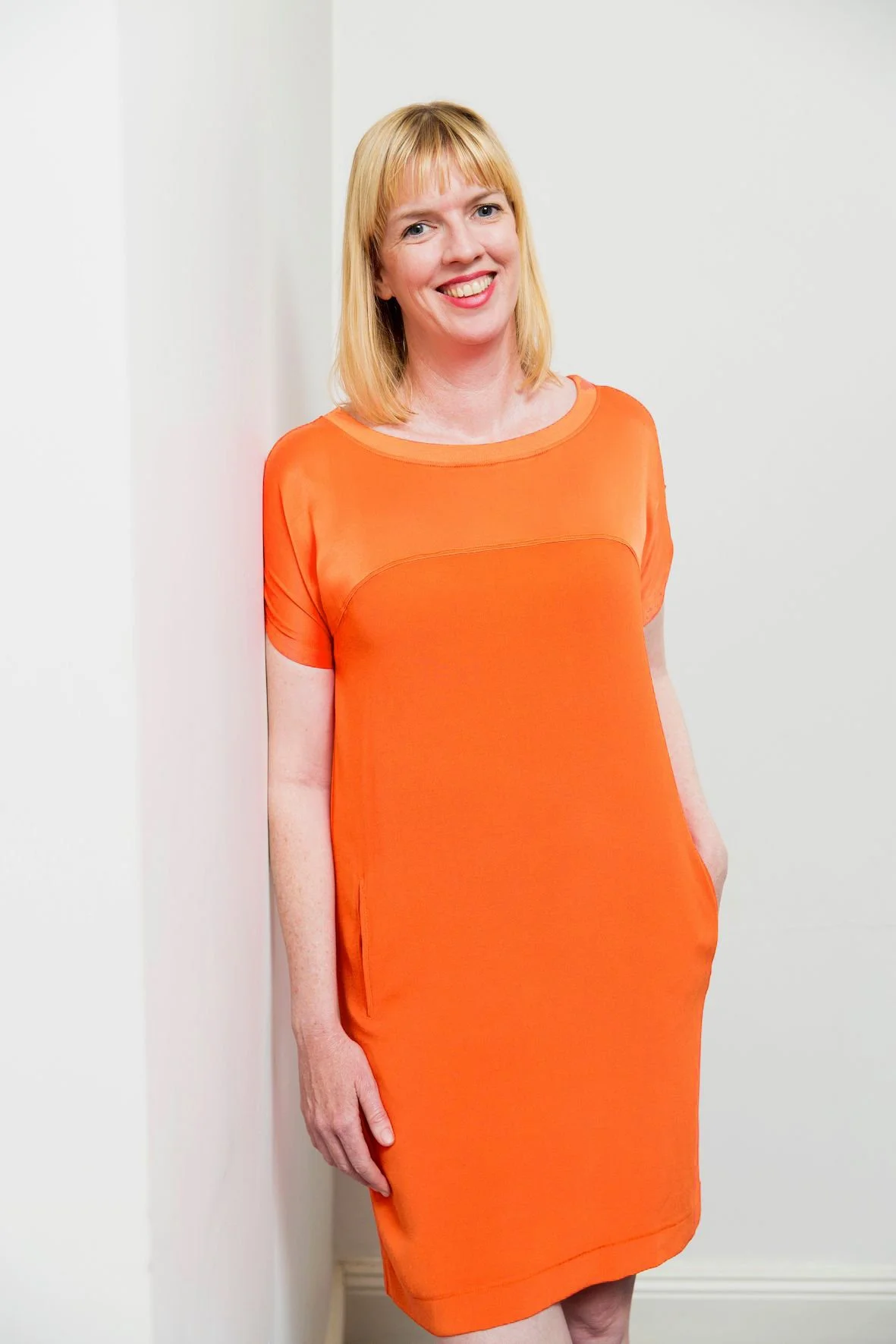“Some people can create strategies and vision, some excel at implementation, but few do both. Kylie is the full deal.”
– Dr Alan Finkel, former Chief Scientist of Australia
“Kylie’s work with us was invaluable in building our brand as a trusted leader and started a national conversation about the role of robotics in society, which has led to the development of Australia’s first National Robotics Strategy.”
– Dr Sue Keay, Chair, Robotics Australia Group and Chair, Australian Academy of Technology and Engineering, Queensland Division
About
CEO, serial entrepreneur and co-founder, publisher and science journalist Kylie Ahern is one of the most powerful and influential advocates for science in Australia today.
Kylie’s work has set a new standard for science communications, publishing and business practice, transforming STEM to unlock millions of dollars in research and attract countless new scientists to the field. Throughout her career, she has connected many thousands to science and STEM-based opportunities; raised the profile of scores of scientific leaders and institutions at home and internationally; unlocked significant research funding for public institutions across the sciences; nurtured a new generation of Australian scientists; and paved the way for a new legacy of scientific achievement.
Kylie has reshaped science communications and science publishing in Australia with extraordinary success. Over the course of her career, she has co-founded three enormously successful multi-award-winning publications: COSMOS, Australia’s first home-grown science magazine; G Magazine, the first-ever “green lifestyle” sustainability-focused magazine; and The Brilliant, the first global hub for science communication. Recognised internationally for her leadership in publishing, she was at the head of Nature magazine’s successful expansion into Australia and NZ.
Launched in 2005, within 18 months COSMOS had dominated domestic markets, outstripping ABC’s online science presence, and eventually garnering a readership in the millions. Combining high-quality, engaging storytelling with rigorous scientific standards, it became a springboard for Australian scientists, launching the profiles of many internationally-recognised leaders in STEM today. Taking an inclusive and values-driven approach to storytelling, under Kylie’s direction COSMOS profiled scientists across different disciplines, expertise, backgrounds and at different stages of their careers. These stories inspired many young people, who may not otherwise have felt welcomed, to pursue the sciences.
COSMOS’ success with young people was the inspiration for its groundbreaking work in STEM education. It became the first science magazine in the world to launch educational resources and teaching materials to bring science into the classroom. Its success was phenomenal: with over 2,000 high school teachers as subscribers, COSMOS reached over 70% of Australian high schools and was read by over 130, 000 students every year. Building on high demand and seeing an opportunity to further encourage STEM in young people, COSMOS created its accessible and free career guides for prospective scientists, which were sent to schools all over the country. One of their clients, Melbourne University, shared that COSMOS had helped achieve their highest science student intake to date – and they weren’t the only university with that feedback.
Kylie’s work with COSMOS had an enormous impact in science communications as well as STEM itself, sweeping publishers’ awards and creating long-term positive change for the industry. COSMOS’ internship programme trained 60+ science journalists – plugging a critical gap in the industry and driving an uptick in the overall amount of science journalists hired at major publications. It diversified its coverage at a time where only 3 in 10 media stories were about women. And its business upheld the values the magazine was founded with: it was the first carbon neutral publication in Australia and the recipient of the Lord Mayor’s Sustainability Award.
Kylie’s dedication to sustainability and environmental awareness was one of the driving factors behind COSMOS spinoff magazine G Magazine, the first global “green lifestyle” magazine. It became the first green magazine stocked in Coles and Woolworths – a milestone in making science and sustainability accessible.
After the sale of COSMOS in 2013, Kylie’s international profile and success led to her being approached for a role at Nature magazine – among the most prestigious science publications in the world – to expand the magazine into Australia and New Zealand. Today, thanks to Kylie’s work, Australia has a thriving, home-grown science communications industry – light years from 2005, when 99% of Australian science publications were to foreign titles and media coverage was almost impossible to attract.
A shining example of the tireless entrepreneurial spirit, Kylie has since founded The Brilliant – the first global hub showcasing excellence in science communications, and the first community for professionals in the field. Alongside The Brilliant has come STEM Matters – a thriving science communications business that has attracted over 70 national and international clients, including Google’s X, the Moonshot Factory, which incubated and developed Google’s self-driving cars, balloon-powered internet and other sci-fi inventions. Her expertise in translational science and entrepreneurship has led to her appointment, among other roles, as a juror for Berlin-based Falling Walls, a gathering for cutting-edge science-based startups.
And as a mentor, advocate and leader, she has worked tirelessly to open up the sciences for everyone. She has emerged as a powerful cultural voice against Tall Poppy Syndrome in Australia, advocating for a culture that celebrates achievement and recognises individual success as success for all. She has individually and professionally supported many hundreds of people at the intersection of science and business, and is particularly notable for her passionate advocacy for women in sciences. Across her many roles in the sciences – from publishing to entrepreneurship to journalism to membership across multiple institutes, committees and boards including at CSIRO and the Institute for Molecular Bioscience – she has emerged as one of the strongest voices in science today.

